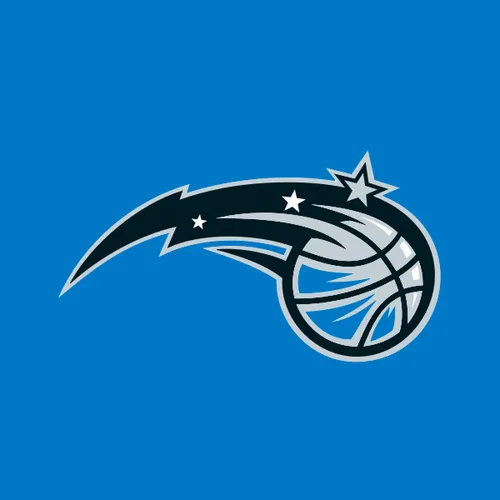







Software Engineering Jobs in the Sports Industry: A Quick Guide
Introduction
The sports industry is continuously evolving, and technology plays an increasingly important role in its growth. Software engineering professionals within this sector contribute to the development and enhancement of applications, platforms, and tools that enable athletes, coaches, and fans to engage with sports in new and innovative ways. In this comprehensive guide, we'll explore the role of software engineering professionals in the sports industry, the types of jobs available, salary expectations, essential skills, and tips for landing a software engineering job in this exciting field.
The Role of Software Engineering Professionals in the Sports Industry
Software engineering professionals in the sports industry develop, maintain, and improve software applications and systems that facilitate various aspects of the industry, including training, performance analysis, fan engagement, and event management. They collaborate with other IT professionals, coaches, and sports administrators to create tailored solutions that meet the specific needs of the industry. In addition, software engineers may work on innovative projects, such as virtual reality experiences for fans, AI-powered analytics tools for coaches, or mobile apps that enhance the overall sports experience.
Types of Software Engineering Jobs Available in the Sports Industry
In the sports industry, software engineering professionals can find a wide range of opportunities across various domains such as frontend development, backend development, full-stack development, mobile development, and in DevOps. Each area plays a crucial role in creating seamless and engaging experiences for users, whether it's through applications, websites, or other digital platforms.
Frontend Development: Frontend developers in the sports industry focus on creating visually appealing and user-friendly interfaces for websites, applications, and other digital products. They use programming languages like HTML, CSS, and JavaScript to build responsive and interactive elements, ensuring that users can easily navigate and access information. Frontend developers in the sports sector may work on projects like team websites, sports news platforms, or mobile apps for live event streaming and real-time updates.
Backend Development: Backend developers in the sports industry work on the server-side components that power the frontend experiences. They are responsible for building and maintaining the infrastructure that processes, stores, and manages data, ensuring seamless communication between servers, databases, and frontend applications. Backend developers use server-side programming languages like Java, Python, or Ruby, and work with databases such as MySQL or PostgreSQL. In the sports sector, backend developers may be involved in projects like creating APIs for real-time sports data, managing databases for player statistics, or developing the backend systems for ticketing platforms and e-commerce stores.
Full-Stack Development: Full-stack developers in the sports industry possess skills in both frontend and backend development, enabling them to work on all aspects of a project, from user interfaces to server-side infrastructure. They are often considered "jack-of-all-trades" in the software engineering world, as they can handle a diverse range of tasks and responsibilities. Full-stack developers may work on a variety of projects within the sports industry, such as building end-to-end solutions for sports analytics platforms, creating custom web applications for sports organizations, or developing mobile apps for sports betting and fantasy sports platforms.
Mobile Development: Mobile developers in the sports industry focus on creating applications for mobile devices, such as smartphones and tablets. They use programming languages like Swift for iOS and Kotlin or Java for Android to develop native apps, or cross-platform frameworks like React Native or Flutter for creating apps that run on multiple platforms. Mobile developers in the sports sector work on a variety of projects, including apps for live event streaming, real-time scores and updates, fantasy sports, sports betting, or fitness and training. Their work ensures that sports fans have access to their favorite teams, events, and information at their fingertips, no matter where they are.
DevOps: DevOps professionals in the sports industry play a critical role in streamlining the development, deployment, and maintenance of software products. They bridge the gap between development and operations teams, facilitating better communication, collaboration, and efficiency. DevOps engineers in the sports sector may be responsible for tasks such as setting up and managing continuous integration and deployment (CI/CD) pipelines, automating testing and deployment processes, monitoring application performance, and ensuring the security and reliability of infrastructure. Their work helps sports organizations deliver high-quality digital products faster, with fewer errors, and in a more sustainable manner.
Salary Expectations for Software Engineering Jobs in the Sports Industry
Salaries in the sports industry software engineering sector vary depending on factors such as experience, geographic location, and the specific organization. Entry-level software engineers can expect to earn an average salary of $50,000-$70,000 per year, while junior-level professionals may earn between $70,000 and $90,000. Intermediate-level software engineers typically earn $90,000-$110,000 per year, and senior-level engineers can expect to earn $110,000 or more. It's important to note that these figures are approximate and may vary based on the company and the nature of the projects.
Essential Skills for Success in Software Engineering in the Sports Industry
Technical expertise: Proficiency in various programming languages (such as Java, C++, or Python), databases, and development frameworks is essential for software engineers in the sports industry.
Problem-solving: Developing innovative solutions to complex challenges requires strong analytical and problem-solving abilities.
Communication: Software engineers must communicate effectively with colleagues, coaches, athletes, and other stakeholders to ensure that their solutions meet the needs of the sports industry.
Adaptability: The sports industry is constantly evolving, and software engineers must stay up-to-date with emerging technologies and trends to remain competitive.
Domain knowledge: Familiarity with the sports industry, including its rules, regulations, and unique requirements, is essential for developing tailored software solutions.
Tips for Landing a Software Engineering Job in the Sports Industry
Gain relevant experience using Rebound: Pursue internships or projects within the sports industry to build your portfolio and demonstrate your expertise.
Network: Attend industry events, conferences, and online forums to connect with professionals in the sports and software engineering sectors. Networking can lead to job opportunities and collaborations.
Specialize: Focus on a specific area within the sports software engineering sector, such as data analytics, game development, or wearable technology, to differentiate yourself from other candidates.
Expand your knowledge: Stay up-to-date with the latest developments in the sports and technology industries by attending workshops, webinars, or enrolling in relevant courses.
Tailor your resume and cover letter: Customize your application materials to highlight your skills, experiences, and passion for both software engineering and the sports industry. Show potential employers how your unique background and expertise make you a perfect fit for their organization.
Conclusion
The sports industry offers software engineering professionals unique and exciting opportunities to contribute to the growth and innovation of the field. With a variety of job types available, competitive salaries, and the chance to work on groundbreaking projects, it's no wonder that software engineering in the sports industry is an attractive career path. By developing essential skills, staying informed about industry trends, and networking with professionals in the field, you can increase your chances of landing a fulfilling and rewarding job in this dynamic sector.



























